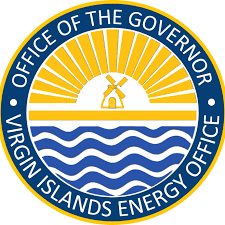
The Virgin Islands Energy Office (VIEO), in partnership with VI Water and Power Authority (WAPA) and the Department of Planning and Natural Resources (DPNR), has worked diligently in alignment with the Bryan/Roach Administration’s vision to create a sustainable renewable energy industry within the territory.
The closing of the Net Energy Metering (NEM) program in June of 2017 resulted in a void in sustainable renewable energy policy within the territory over the last three years. In June, that void in sustainable policy was filled with the roll-out of the Net Energy Billing (NEB) program. The program was developed through a collaborative inter-agency working group that sought to bring a sustainable and quantitative interconnection process to the Virgin Islands.
Through the development cycle, the Working Group identified that the advances in distributed energy technology and the ambiguity in interconnection policy created an environment in which installations have persisted without the required permitting or approval framework. The implementation of the Net Energy Billing program addresses the interconnection approval void by enabling a multi-step assessment process and
implementing an adjusted excess generation rate structure. In addition, Title 29, Chapter 5 of the V.I. Code specifies the obligation of DPNR to require and enforce permitting of distributed energy systems coupled structurally and/or electrically to a dwelling.
The program was officially implemented through the Public Services Commission’s (PSC) approval on June 15.
Furthermore, the program applies to all future grid-connected distributed generation installations as well as all non-net metering existing grid-connected installations. Specifically, all grid-connected systems that were installed following the June 2017 closure of the Net Energy Metering program and were not grandfathered into the program must be registered within the Net Energy Billing Program.
The technology eligibility applies to grid-tied solar/wind systems and grid-tied solar/wind plus storage systems. Additionally, self-consumption and/or zero-export system configurations are not exempt from Net Energy Billing (NEB) program registration. Fully Off-Grid systems, IE complete physical and electrical isolation from the WAPA meter and grid infrastructure are exempt from the NEB program; however, under Title 29, Chapter 5 of the V.I. Code these installations will still require DPNR permitting.
“This joint communication serves to remind unregistered distributed energy stakeholders that the Net Energy
The billing program is not a voluntary program. We expect all currently installed, non-net meter and future grid-connected distributed energy installations to be registered within the program,” said Kyle Fleming, director of the VI Energy Office.
“The online permitting portal strives to expedite and streamline the permitting process of installers and community stakeholders seeking to register distributed energy installations throughout the territory,” said Fleming.
The VI Energy Office is in the process of scheduling in-office walk-throughs of the online permitting portal; the office invites installers, electricians and property owners to call 713-8436 to schedule an appointment on St. Croix and St. Thomas.
As a point of emphasis, Water and Power Authority (WAPA) line crews and meter services in partnership with the Department of Planning and Natural Resources (DPNR) inspection teams will be tasked with surveying and identifying unregistered DG installations throughout the Virgin Islands. Systems found “out-of-compliance” will be issued a warning sticker via DPNR. An application must be submitted within two weeks following the issuance of a warning from DPNR. After two weeks, if an application has not been submitted and willful negligence has been identified, fines will be assessed to the property owner.
“We are hoping to avoid additional enforcement measures in this matter, but we must ensure compliance territory-wide,” Fleming said.


